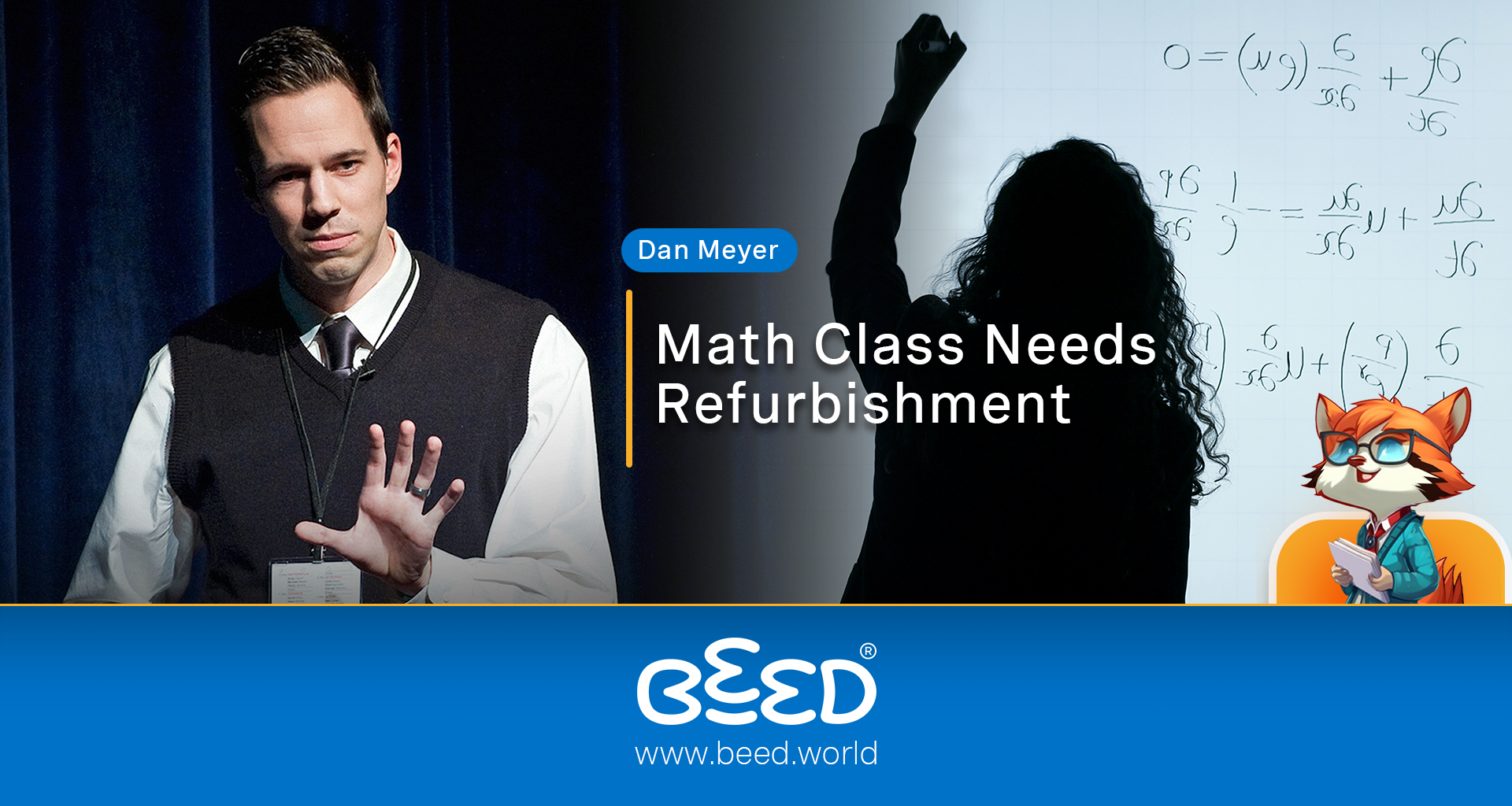Dan Meyer: Math Class Needs Refurbishment

Dan Meyer is a high school math teacher, blogger, and speaker who advocates for a revolutionary approach to math education. His central message is that traditional, formulaic math instruction stifles creativity and problem-solving skills. He proposes a more engaging and thought-provoking approach that prioritises student inquiry and discovery.
Meyer's Philosophy:
- Focus on Problem Formulation: Meyer believes the most important skill in math is not memorising formulas but learning how to formulate problems and approach them strategically.
- Open-Ended Tasks: He champions the use of open-ended math problems that require critical thinking, reasoning, and multiple solution paths. These tasks spark curiosity and encourage students to "play" with math concepts.
- De-Emphasis on Procedures: Meyer argues against teaching procedures upfront. Instead, he advocates for guiding students to discover the "why" behind the formulas through exploration and investigation.
Impact of Meyer's Ideas:
- Shifting Practices: Educators worldwide are drawing inspiration from Meyer's ideas, implementing open-ended tasks and inquiry-based learning in their classrooms.
- Focus on Deeper Understanding: Meyer's approach promotes a shift from rote memorisation to a deeper conceptual understanding of mathematical principles.
Examples of Meyer's Approach:
- The Pool Problem: Students are presented with a picture of a swimming pool with various depths and asked to determine how much water it would take to fill it. This open-ended problem encourages them to explore different strategies and collaborate to find solutions.
- The Ice Cream Truck: Students are given data about an ice cream truck's route and asked to determine the most efficient route for maximising sales. This problem integrates math concepts like distance, time, and optimisation.
Challenges and Considerations:
- Teacher Training: Implementing Meyer's approach effectively requires teachers to embrace a different role, becoming facilitators of inquiry rather than deliverers of information.
- Assessment Strategies: Traditional assessment methods focused on memorised formulas may need to be adapted to evaluate critical thinking and problem-solving skills.
- Curriculum Alignment: Some existing curriculum materials may not fully support open-ended learning activities.
Conclusion: Dan Meyer's innovative approach to math education challenges traditional practices and ignites a passion for mathematical thinking. His work continues to inspire educators to create engaging and thought-provoking learning experiences that equip students with the critical thinking and problem-solving skills they need to succeed in the 21st century.